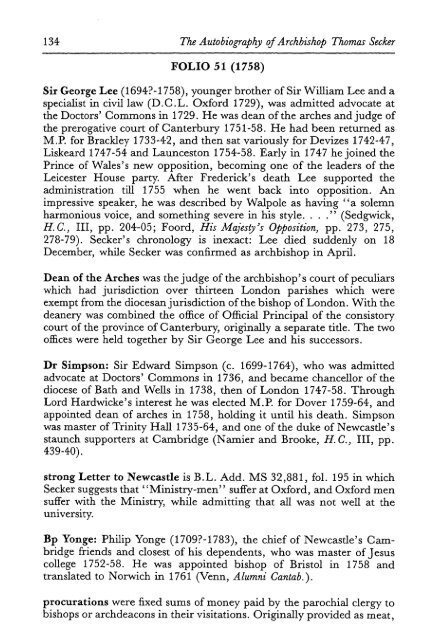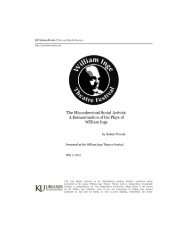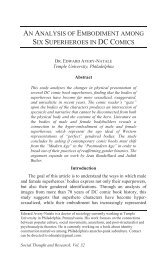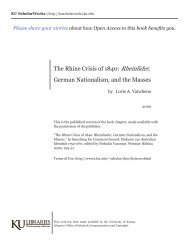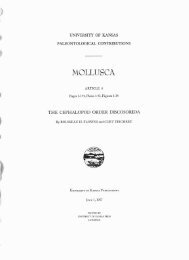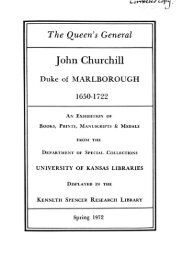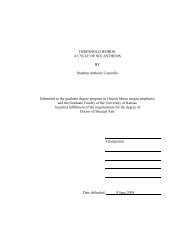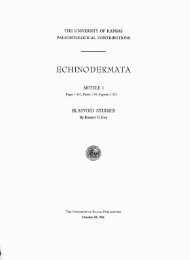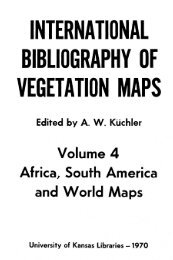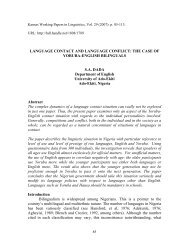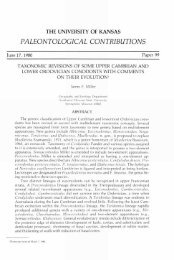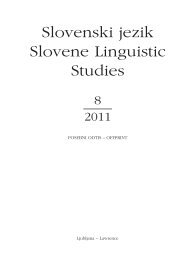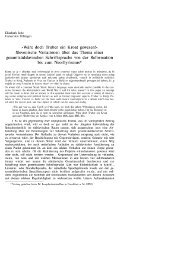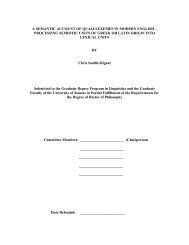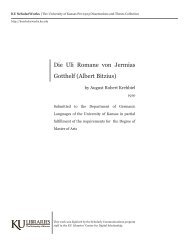Archbishop of Canterbury - KU ScholarWorks - The University of ...
Archbishop of Canterbury - KU ScholarWorks - The University of ...
Archbishop of Canterbury - KU ScholarWorks - The University of ...
Create successful ePaper yourself
Turn your PDF publications into a flip-book with our unique Google optimized e-Paper software.
134<br />
<strong>The</strong> Autobiography <strong>of</strong> <strong>Archbishop</strong> Thomas Seeker<br />
FOLIO 51 (1758)<br />
Sir George Lee (1694P-1758), younger brother <strong>of</strong> Sir William Lee and a<br />
specialist in civil law (D.C.L. Oxford 1729), was admitted advocate at<br />
the Doctors' Commons in 1729. He was dean <strong>of</strong> the arches and judge <strong>of</strong><br />
the prerogative court <strong>of</strong> <strong>Canterbury</strong> 1751-58. He had been returned as<br />
M.P. for Brackley 1733-42, and then sat variously for Devizes 1742-47,<br />
Liskeard 1747-54 and Launceston 1754-58. Early in 1747 he joined the<br />
Prince <strong>of</strong> Wales's new opposition, becoming one <strong>of</strong> the leaders <strong>of</strong> the<br />
Leicester House party. After Frederick's death Lee supported the<br />
administration till 1755 when he went back into opposition. An<br />
impressive speaker, he was described by Walpole as having "a solemn<br />
harmonious voice, and something severe in his style. ..." (Sedgwick,<br />
H.C, III, pp. 204-05; Foord, His Majesty's Opposition, pp. 273, 275,<br />
278-79). Seeker's chronology is inexact: Lee died suddenly on 18<br />
December, while Seeker was confirmed as archbishop in April.<br />
Dean <strong>of</strong> the Arches was the judge <strong>of</strong> the archbishop's court <strong>of</strong> peculiars<br />
which had jurisdiction over thirteen London parishes which were<br />
exempt from the diocesan jurisdiction <strong>of</strong> the bishop <strong>of</strong> London. With the<br />
deanery was combined the <strong>of</strong>fice <strong>of</strong> Official Principal <strong>of</strong> the consistory<br />
court <strong>of</strong> the province <strong>of</strong> <strong>Canterbury</strong>, originally a separate title. <strong>The</strong> two<br />
<strong>of</strong>fices were held together by Sir George Lee and his successors.<br />
Dr Simpson: Sir Edward Simpson (c. 1699-1764), who was admitted<br />
advocate at Doctors' Commons in 1736, and became chancellor <strong>of</strong> the<br />
diocese <strong>of</strong> Bath and Wells in 1738, then <strong>of</strong> London 1747-58. Through<br />
Lord Hardwicke's interest he was elected M.P. for Dover 1759-64, and<br />
appointed dean <strong>of</strong> arches in 1758, holding it until his death. Simpson<br />
was master <strong>of</strong> Trinity Hall 1735-64, and one <strong>of</strong> the duke <strong>of</strong> Newcastle's<br />
staunch supporters at Cambridge (Namier and Brooke, H.C, III, pp.<br />
439-40).<br />
strong Letter to Newcastle is B.L. Add. MS 32,881, fol. 195 in which<br />
Seeker suggests that "Ministry-men" suffer at Oxford, and Oxford men<br />
suffer with the Ministry, while admitting that all was not well at the<br />
university.<br />
Bp Yonge: Philip Yonge (1709?-1783), the chief <strong>of</strong> Newcastle's Cambridge<br />
friends and closest <strong>of</strong> his dependents, who was master <strong>of</strong> Jesus<br />
college 1752-58. He was appointed bishop <strong>of</strong> Bristol in 1758 and<br />
translated to Norwich in 1761 (Venn, Alumni Cantab.).<br />
procurations were fixed sums <strong>of</strong> money paid by the parochial clergy to<br />
bishops or archdeacons in their visitations. Originally provided as meat,


